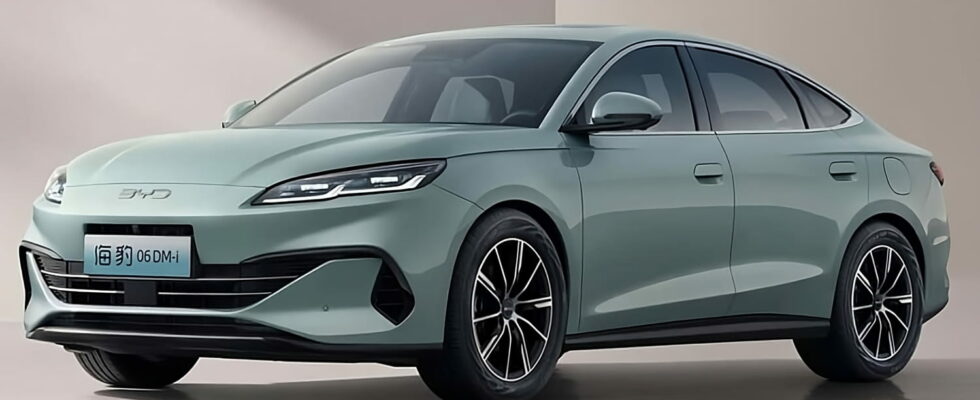A major Chinese manufacturer has presented a new hybrid engine with impressive range. And the good news is that it will equip particularly affordable vehicles.
Imagine making a Lille-Marseille round trip by car without worrying about finding a gas station or charging station! As incredible as it seems, it is now possible to travel some 2000 km on a single tank of fuel and without having to recharge a single battery. This feat is made possible thanks to BYD. The major Chinese automobile manufacturer has just marketed two vehicles equipped with a revolutionary all-hybrid engine, which combines the advantages of thermal and electric.
Combining a high-performance combustion engine and an ultra-powerful electric motor, this new model embodies BYD’s fifth generation of plug-in hybrids. It stands out for its remarkable energy efficiency due to its artificial intelligence system which optimizes the use of each engine according to driving conditions. The base model thus combines a 1.5 liter 74 kW thermal engine and a 120 kW electric motor, the whole consuming only 2.9 l/100 km for a record range of 2,100 km.
And that’s not all ! This incredibly efficient technology is much more accessible than pure electric. BYD introduced it on two models, the Qin L and the Seal 06, which are marketed from only 13,000 euros. Needless to say, success is already there: 3 days after its official launch in China, on May 28, 5,000 copies of the Qin L had already found buyers.
Despite this great success, it is appropriate to put some figures into perspective. First, the 2,100 km range was measured according to the CLTC cycle, a Chinese standard that is more optimistic than the European WLTP cycle. Then the price of 13,000 euros corresponds to the “lowest” version of the cheapest model. Finally, we do not know at this time if the two vehicles will one day be sold in Europe.
These remarks do not detract from the intrinsic qualities of this new engine which proves that the hybrid has not said its last word against the electric. This new hybrid technology represents real progress that could well be a game-changer in the automotive sector. It offers an attractive alternative to electric vehicles, while reassuring drivers who fear the limited autonomy of the latter. It remains to be seen whether other car manufacturers will follow this path. The race for innovation is clearly not over and BYD has taken a step ahead of the competition!
